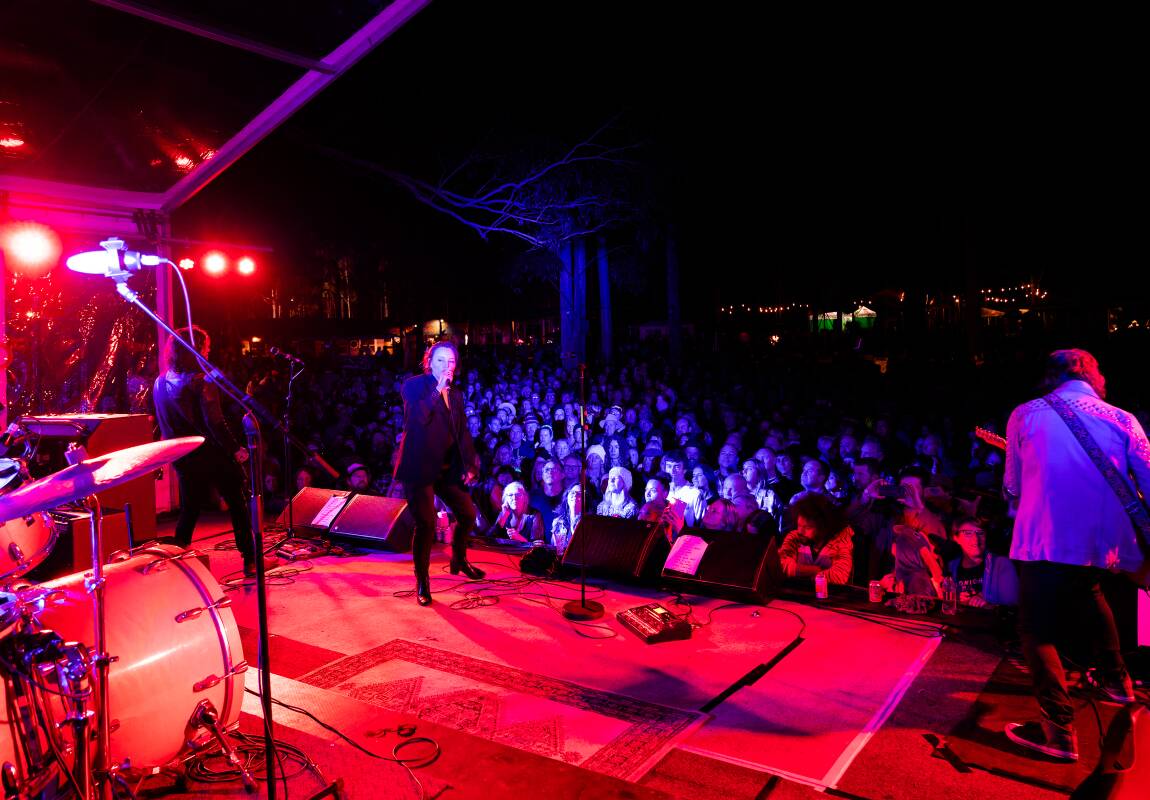
THE announcement on Wednesday that the Hunter's largest annual music festival, Groovin The Moo, had cancelled due to poor ticket sales sent shock waves among punters.
But people within the industry weren't so surprised.
In what has been described as a "perfect storm", a multitude of factors are impacting the live music business, to make a traditionally volatile industry, almost impossible.
These range from ballooning insurance and artists fees to cost-of-living pressures that are hitting young people - the traditional target market of festivals - the hardest.
Buying habits since COVID-19 have also changed. People tend to buy tickets later, making events riskier for promoters who have multiple sub-contractors who need to be paid.
There's also been an influx in major overseas acts in the past year like Taylor Swift, Paul McCartney, Pink and Foo Fighters burning through the disposable incomes of music fans.
"Festival infrastructure is up, insurance is up, everything is up and then there's artists costs going up," Newcastle promoter Greg Mathew said. "It's just a perfect storm.
"If you don't get a line-up that cuts through, you're done. It's really, really challenging."
It wasn't very long ago that Newcastle and the Hunter could claim to be one of Australia's most fertile markets for music festivals.
Take 2019 for instance.
Newcastle and the Hunter hosted By The C (January), The Drop, Live At The Foreshore, Up Down, Wine Machine (March), Groovin The Moo, Gum Ball (April), Paddock Sessions (May), Wollombi Music Festival (September), Dashville Skyline, FKA Festival (October), This That, Scene & Heard and Grapevine Gathering (November).
Only Gum Ball, Dashville Skyline, Wine Machine and Grapevine Gathering of those 14 music festivals have survived into 2024.
Smaller locally-focused festivals have successfully emerged since the pandemic like West Best Bloc Fest and the Carrington Crawl.
Mathew used to promote Newcastle's largest annual music This That and its middle age-targeted sister festival Scene & Heard at Wickham Park.
A second straight cancellation last September, due to poor tickets sales, served as the permanent death knell for This That.
Mathew said he feels for Groovin The Moo promoters, Fuzzy.
"Groovin is operated by a big company and they do Field Day and they know what they're doing," he said.
"They delivered a line-up they thought would do the job and they clearly from the get-go, after a week or two of tickets being on sale, knew they weren't going to get there.
"The same with This That. We knew the writing was on the wall."
Mathew said last year's Cambridge Farewell Festival, which drew more than 10,000 people over three days, was proof major music events remain attractive if you curate the right line-up.
The event's historical significance as the final show before the Cambridge Hotel's closure was another factor in its success.
Mathew also cited the growth of the Bar On The Hill forecourt as an outdoor venue as another positive to emerge. G-Flip, DMA'S, The Wombats and Polaris have all attracted large crowds.
"All the success we're having at the university, I feel, is because the ticket price is right," he said. "People connect with the artist, can get there and home in a night and not blow all their cash."
The cancellation of Groovin The Moo caused Dashville owner Matt Johnston to take a moment of reflection this week. Gum Ball and Groovin The Moo both started on the same day in 2006 and were often held on the same weekend.

"For us we're always conscious that it only takes one small thing to wreck the atmosphere of the festival," Johnston said.
Johnston said the Gum Ball was less prone to economic fluctuations due being a smaller festival held on private property, but promoting remained challenging.
"We're still got a way to go with Gum Ball and it's all looking fine and we're definitely not looking to cancel, but last year was a horrible year for events," he said.
"The last one we did was 45 degrees and nobody turned up for safety reasons. It doesn't take much to knock an event over and they're very fragile ecosystems."







